If your chickens stopped laying eggs, there is a reason. Figuring out what the reason can sometimes be challenging. But don’t fret, we can figure this out together!
Chickens not laying eggs when they’re supposed to be is really, really frustrating. I know, because I’ve been there. From time to time my chickens stopped laying and I had to figure out why.
You think you’re doing everything right, but egg production has stopped…..and you’re left to wonder “Why are my chickens not laying eggs?” There can be a variety of reasons and that’s what we will be talking about in this article.
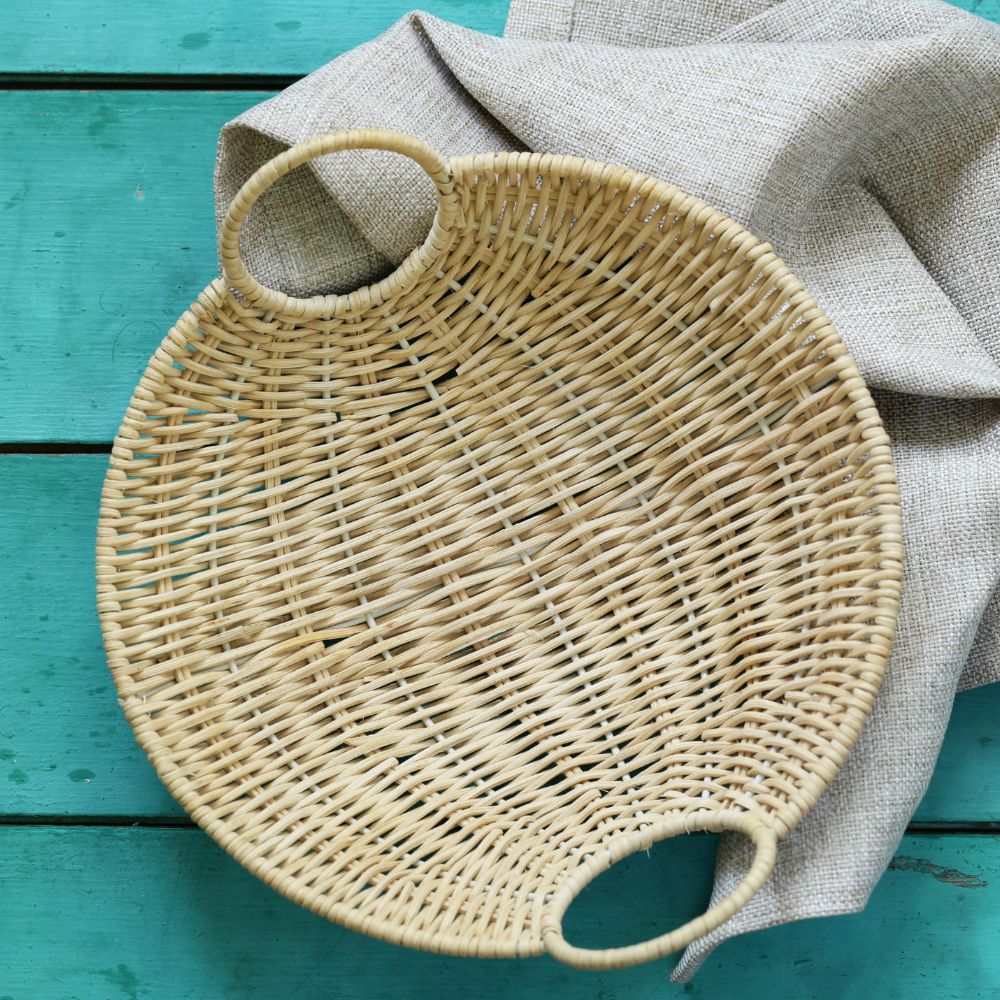
Table of Contents (Quickly Jump To Information)
10 Troubleshooting Tips For Why Your Chickens Stopped Laying Eggs
#1: They aren’t getting enough protein. Chickens need feed with 16%-18% protein.
The most common reason chickens stop laying is by far the amount of protein they’re getting.
A good chicken feed of 16 – 18% protein is always recommended to avoid these issues. It doesn’t mean you won’t ever have another problem, but it’s a good foundation to start with. Feeding a high-quality feed with the right amount of protein will certainly prevent many other potential problems. Check out this feed, it’s packed full of amazing ingredients.
BUT, it’s not quite that simple. Chickens are individuals, and I’ve found that even different breeds can require an additional amount of protein to lay efficiently. My Production Red chickens happily produce eggs every day with a 16% protein layer feed. My Blue Copper Marans require a 22% game feed, however.
Particularly if you let your hens forage all the time, they might not be getting enough protein. One way to test this is to offer a handful of mealworms (either live or freeze-dried) to your chickens to see if they pick up production.
#2: Not getting enough food. You might need to measure the right amount per bird and watch them to be sure they are all getting a chance to eat.
Nutrition is so important for your flock, just like it is for us humans. Chickens need a certain amount of food, and unfortunately, they can’t tell you if they are still hungry (at least not with words).
A well-known ballpark figure for estimating purposes is 1/4 pound of feed per chicken per day, or, 1.5 pounds of feed per chicken per week. Keep in mind that this is a ballpark figure, and you’ll need to watch your flock’s intake. If they gobble their feed quickly and still seem hungry, offer more.
You also need to watch for chickens getting pushed out of the way. This can happen with birds low in the pecking order, and if you have a lot of chickens or very bossy hens.
You can try putting out extra feed stations or separating less-dominant birds from the flock during dinner (or permanently, if they’re getting really picked on).
#2: Your laying hens are stressed. Figure out if your chickens are stressed and remove the “thing” that is stressing them.
You may not even realize your hens are being stressed out. Here is a partial list of potential stressors: mishandling (like a child taunting them), boredom, adding new chickens to the flock, an overpopulated chicken coop, dirty nesting box issues, aggressive roosters, bully hens, and predators.
These are all things you can adjust, change, and rearrange for the good of your hens’ health.
#3: Lack of vitamins and minerals. Make sure your chickens have enough vitamins and minerals in their diet.
If one or more chickens stopped laying, there might be a vitamin or mineral deficiency, and they won’t lay until those needs are met.
Vitamin and mineral deficiency is one reason chickens stop laying. There are a lot of reasons your chickens might need a supplement, far more reasons than I can include in one article. If your chickens have stopped laying, then offering a vitamin supplement like this might be necessary.
While it can be hard to pinpoint the exact deficiency without bloodwork or at least a vet exam, there’s 4 possible reasons your hens might be vitamin or mineral deficient if your chickens have stopped laying.
Vitamin D
Lack of Vitamin D – which is needed to absorb and metabolize calcium correctly – is one possible factor if your chickens have stopped laying. The most common cause of this deficiency is not enough sunlight.
If your chickens are cooped up constantly (and not out in the sun), this can lead to a decrease in their Vitamin D absorption. Simply letting them sunbathe for an hour or so each day is a great preventative.
Adding some vitamin D to their feed for about 3 weeks might increase the laying.
Calcium
Once they start laying, your chicken’s calcium requirements quadruple.
Chickens absorb calcium through their intestines, and without enough calcium, they either won’t lay or will lay very soft-shelled eggs.
If your chickens are low in vitamin D, they’ll have difficulty absorbing calcium. Try giving your flock egg shells or oyster shells as a supplement if your chickens stopped laying.
You should supplement your chickens daily rations with calcium anyway.
Iron
Ever see chickens open and close their mouths, as if they had sour crop? Yet the crop is empty? This can be a sign of iron deficiency, and your hen might be anemic. (If it gets to this stage, you need to take her to a vet). If your bird is truly ill, she might have stopped eating, which can cause anemia as her iron levels drop.
Anemia doesn’t just occur if your chickens are sick. Sometimes anemia happens when your hen simply isn’t getting enough to eat, or her diet is low in iron, or she’s suffered a severe mite infestation.
As chickens become more anemic, their red blood cells have difficulty bringing oxygen around their body. (That’s why it looks like she’s gasping for breath). If it’s been going on long enough, and your chickens stopped laying, you will notice your chickens have lost weight, too.
Use their breast bones as a guide. Does it feel muscular, or does it just feel like bone? For a definitive diagnosis, you’ll need a vet’s advice.
Salt
If you are wondering why chickens aren’t laying eggs, check their salt intake.
Chickens that don’t get enough salt will experience a loss of appetite and might stop laying as a result. Signs of too little salt also include increased feather pecking, loss of weight, and an increase in nervousness.
If your flock gets a good layer feed and is allowed to forage, it’s unlikely they will be salt deficient. Chickens fed a large cereal-based diet (such as hens only fed oats) might need a salt supplement.
Be cautious with overloading your chickens on salt, as too much can lead to kidney problems and death. As with anything, moderation is best. To be on the safe side, you can offer salt free-choice (in a cup, for example), and let your hens peck at it whenever they want, or add a little to their dinner.
If your chickens stopped laying and you want to provide salt, I only recommend using Himalayan salt. It still has a lot of the natural minerals that something like table salt lacks.
#4: Old age. Figure out how old your chickens are. If they’re very old, they might not lay eggs because of their age (read more about how long chickens live here).
Another possible issue for chickens not laying is age. As anything ages – chickens, people, etc., absorbing the right vitamins and minerals can get difficult. This one is short and sweet, the older they are the less eggs they will lay and the more problems they will have.
#6: Hide and go seek. Figure out if your chickens are hiding their eggs.
Frequently I hear from readers whose chickens stopped laying suddenly and they are wondering how to get their beloved chickens to lay eggs again.
My first question is about diet. If that answer checks out ok, then I usually ask whether the chickens free range or not. Typically the answer is yes, their chickens’ free range.
While there can certainly be another reason your chickens stopped laying, barring a diet issue, it’s entirely possible your hens have made a nest for themselves in some hidden area.
This happens more often than you’d think.
Chickens like to lay eggs in quiet and in dark, secret places. This way she can sit on them without disruption and the eggs have a higher likelihood of hatching.
So, if your chickens stopped laying without explanation, put them in their coop for a week or so to see if any eggs appear.
#7 Check your calendar. What time of year is it?
If it’s winter, this may be the problem. Most chickens require 14 hours of daylight in order to lay eggs.
I say “most” because we’ve bred some Production Red hybrids on our farm that still lay throughout winter months.
If your chickens stopped laying, consider the time of year. If it’s winter, then it’s completely natural as there are shorter days (less sunlight).
There’s plenty you can do to keep your chickens laying through the winter though, such as providing artificial light (which can even be set up on timers)!
#8 Check their feathers. Are they in their annual molt?
When we say “chickens molting,” you might wonder what that really means. It’s a term you see thrown around on Facebook, but it can be confusing if you’re a beginner with chickens.
Basically, when we say “chickens molting,” we mean that your hens and roosters are losing their feathers. Don’t worry – they’ll grow new ones, and chickens molting is perfectly normal.
Inconveniently, chickens tend to molt in the late fall or early winter. They can stop laying, or at least slow down because they redirect their energy into growing new feathers.
#9 Is your hen ill? Illness can cause all kinds of problems.
Chicken keepers always need to keep their eye on the general health of their chickens. If you pay attention daily, then it’s easier to know when something isn’t right.
Perhaps a hen is sitting in the corner and not excited about treats like normal, or maybe one of your hens has a lot of fecal matter stuck to her vent, or perhaps you hear a cough in the coop. These are signs of illness.
You also need to regularly check for parasites like lice and mites. There are ways to prevent these ugly little creatures as well, like nesting herbs specially formulated to repel them.
#10 Is your hen broody?
Broody hens will stop laying eggs in order to take care of the ones she’s sitting on. To learn more about this behavior, and what you can do about it, read this article: Broody Hen – To Help or Hinder, You Decide.
Summary
I hope my experiences and research help you determine why your backyard chickens stopped laying eggs. I know it can be very frustrating as you are walking through the troubled waters.
Just know that you can usually find the problem and fix it…and be on the path to a beautiful bowl full of farm fresh eggs!
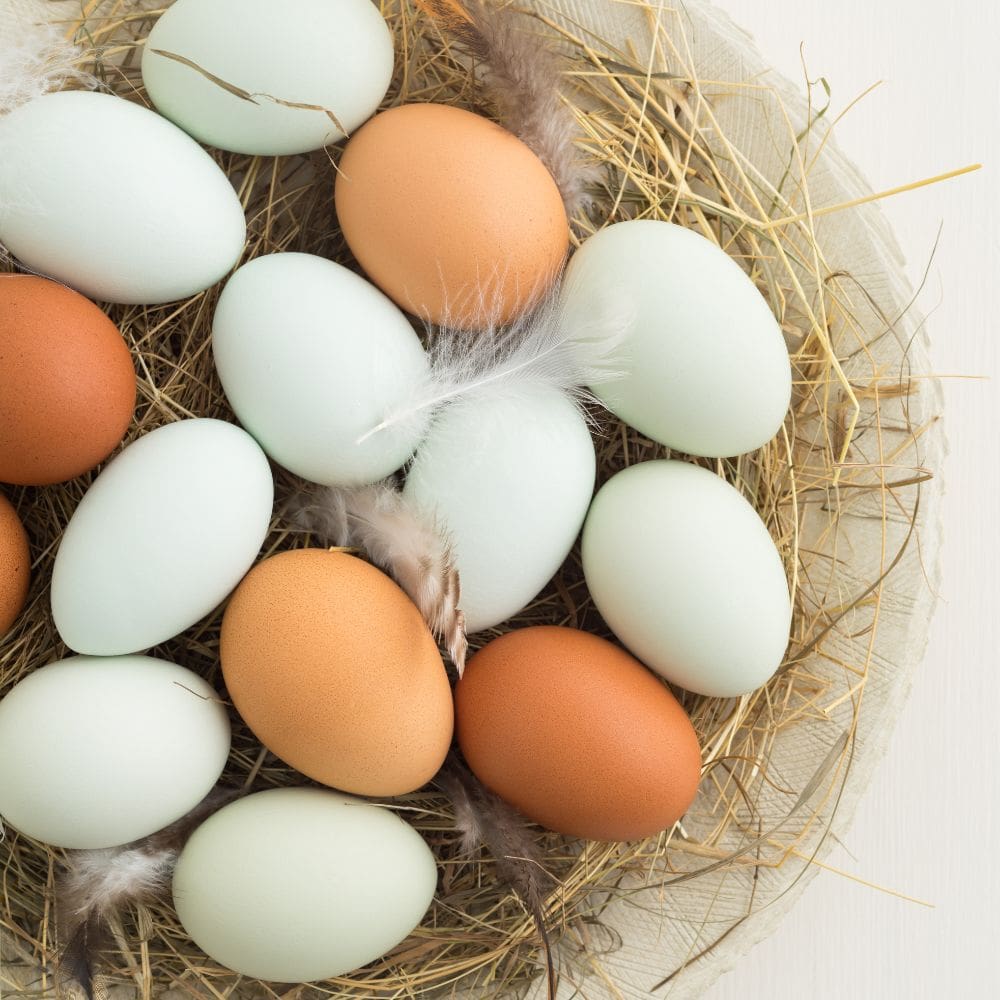
Maat van Uitert is a backyard chicken and sustainable living expert. She is also the author of Chickens: Naturally Raising A Sustainable Flock, which was a best seller in it’s Amazon category. Maat has been featured on NBC, CBS, AOL Finance, Community Chickens, the Huffington Post, Chickens magazine, Backyard Poultry, and Countryside Magazine. She lives on her farm in Southeast Missouri with her husband, two children, and about a million chickens and ducks. You can follow Maat on Facebook here and Instagram here.

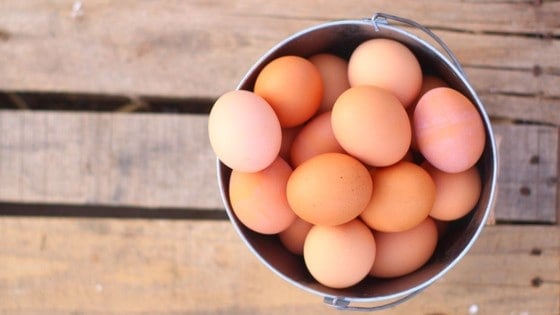
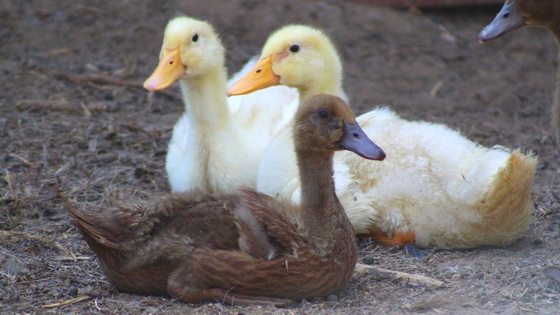
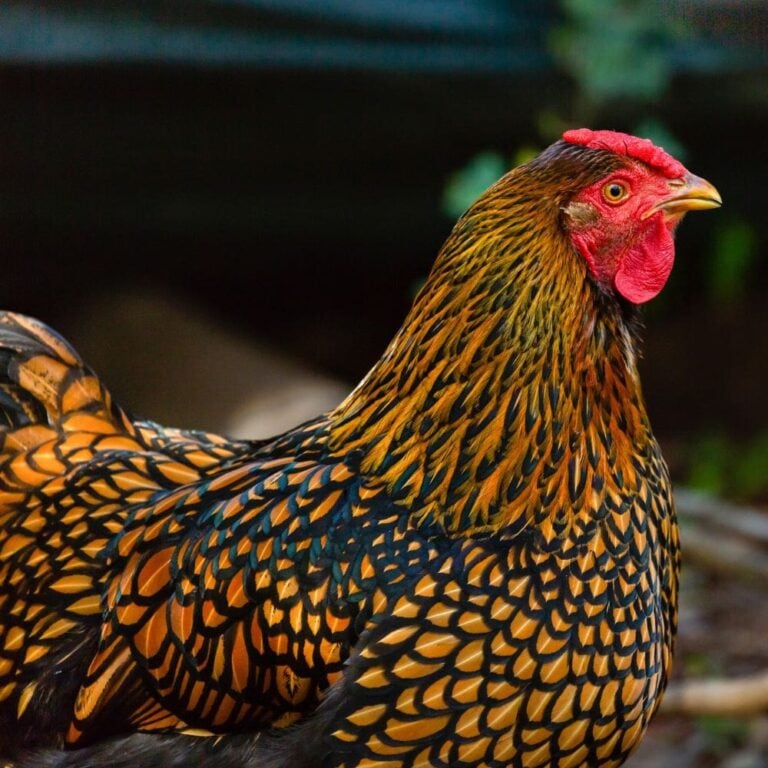
![Incubator Chickens, Chickens & Turkeys, And Nesting Box Drama [Podcast]](https://thefrugalchicken.com/wp-content/uploads/2016/02/incubator-chickens-feature.jpg)

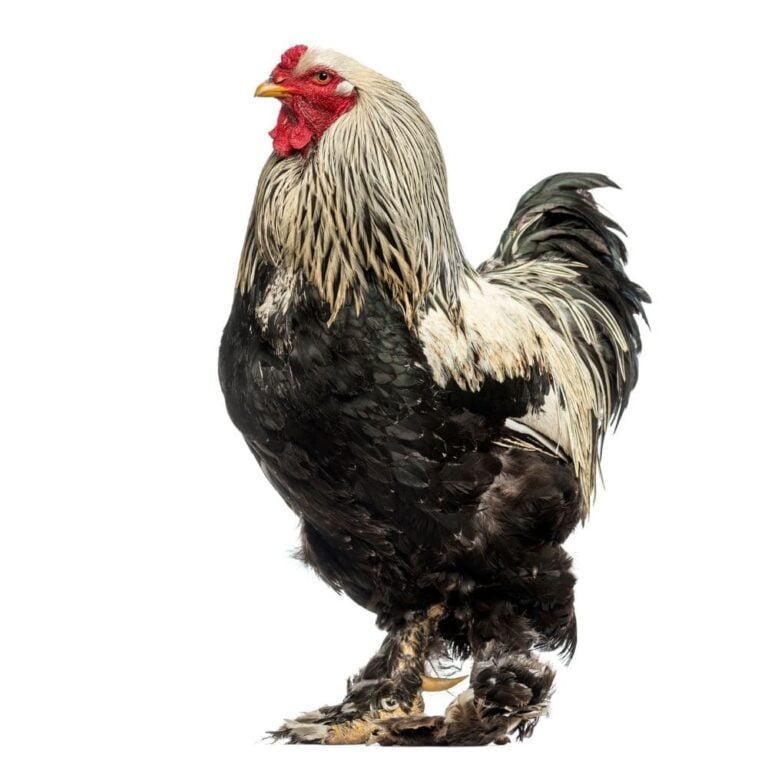
Thanks I have a rat problem I am bringing out the big guns girls in the coop son with pellet gun in the run hope this works
Sorry to hear about the rat problem! Hope it works out!
Another problem may be if your hens have become egg eaters. Dealing with this now.
How long after you correct the problem will they start laying again?
It’s difficult to say, because it depends on the individual.
A few years back there was a climate control experiment that happened in the airspace over our mini farm in Northern California involving distributing aluminum oxide into the stratosphere to combat climate change. It was a dingbat idea, and of course didn’t work, but my hens also suddenly stopped laying. Aluminum oxide poisoning can cause hormonal balances in both humans and poultry it seems, but the best treatment for both is wheatgrass. With people it is silica heavyoneral water or wheatgrass blendwd into a drinkable state. For my girls ot was 5-8 day live sproutwd wheatgrass grain which is very high in silica as well as other good chickeny things – so a great idea anyway, but the silica specifically bonds with the aluminum oxide to clear it from the system quickly and permanently. The girls were instantly (less than 2 days) back to production. There are many similar harebrained ideas I can thonk that could be occuring in the skies above you, so some cleansing foods like sprouted grains incliding wheat berries os veey wise at different points in the year is smart coop management. Sprouted grains/seeds are superfoods and provide for many needs for your birds, even ones you don’t know you have yet.
Annette DeBrotherton
Good points!
I have 13 hen that should laying but only 5 are. Not sure what happened or if I need to add more boxes to their coop. Right noe there are 4 and a roosting area, which they don’t use. My 3 year olds are the ones not laying. Not sure if the breed because they are mixed.
Hi Tonya, the 3 year olds might be too old to lay. After about 2 years of age, they can slow down their laying. If you’re in the US, they might be slowing down because the days are getting shorter.
We have 5 chickens – 3 are 2 years old and 2 are 4 years old. We had 7 up until about a month ago when an opossum got in and killed 2 of our girls. Ever since this murderous event the remaining 5 have not laid a single egg! We have secured their coop and run and replaced all the nesting material etc. they are also molting now. Not sure what else to do! Maybe a little more protein? Some nice music? Poetry reading? ? I’m ready to try just about anything!
Hi Sheri, you might not get eggs until spring, especially if they’re molting. They will start laying again when they’re ready to.
We have a hawk problem so we only allow free ranging when we are at home. We have a bantam that will not lay when we have to keep them in the run for the day. When she is allowed to free range though she lays 6 out of 7 days. She does tend to go broody more often than the others. Our run is plenty big 40 X 10 for 15 full size and 1 bantam. She is a funny little bird.
My chickens are a male and female Buff Orpington. The both began molting in November and then the stopped laying December thru today. Lucy, my girl, was always very consistent in her egg production. Normally, she would lay one to two eggs every day. I’ve tried everything. I’ve added protein, salt, calcium. They get fresh greens and fruit scraps daily. Any ideas?
Hi! We have 3 hens that are about a year old. Our Easter Egger had been laying great until November. We thought maybe it was because the days were getting shorter so we put a lamp in. It’s May now and she’s still not laying. The other 2, golden sex-link & barred rock, layed just fine through the winter. The only other thing that happened in November was that we introduced new chicks into the coop. My husband thinks maybe she stressed. She acts very sulky and doesn’t interact with the other 2 like she used to. Do you know anything about how stress can affect laying ? Thanks!
My bantam easter Egger laid 2 green eggs back in march. I have not seen anymore eggs from her. She is the smallest and lowest on the pecking order. Not sure what the issue is?? There’s plenty of light,eats layer feed and give them their shells to eat. Anyone else have issues with the bantam easter egger?
Do your chickens free range?
No, they are in my Garden from October to around now eating all the weeds and bugs. I confine them to a run along the garden during the growing season. I have too many predators that can snatch them up. I lost 2 chickens to hawks this year. I put aviary netting across the garden to keep predators out. I do feed them some meal worms and sunflower seeds occasionally.
My Cochin hen, Freckles laid 2 small quail size eggs outside the coop and then quit laying all together about 3 weeks ago. Not sure why she gets plenty of layena, mealworms and fresh greens and veggies from garden. The rooster, Rusty was picking on her a lot so we separated them and put her in the run (boy was he mad) with the 3 month old baby chicks and ducks. they’re all getting along great. She’s the top hen for sure and loves the ducks, Peeps, Quackers, Carmela, and Brownie. They babies give her space and stay their distance. So I’m going to try the calcium next. She’s only 2 years old and was a good layer. Wish me luck
PS. Love your blog
Thanks